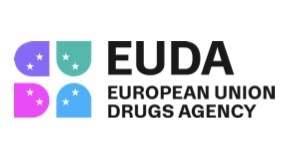In the EU, 23% of Teenagers Gambled in 2024: Key ESPAD Data

The European School Survey Project on Alcohol and Other Drugs (ESPAD) conducted a survey among 113,000 students aged 15 to 16, revealing that problem online gambling among teenagers in the EU has nearly doubled since 2019.
Key Gambling Data
Teen gambling remains stable, but there has been a significant rise in online activity since 2019. The ESPAD 2024 study covered 37 European countries and identified concerning trends.
- Total share of teenagers who gambled in 2024: 23%
- Online gambling: increased from 7.9% in 2019 to 14% in 2024
- 65% of those who gambled did so online (fully or partially)
- Boys: online gambling participation rose to 20%
- Girls: up to 8.7%
Signs of problem gambling have also intensified:
- In 2019: 4.7%
- In 2024: 8.5% (boys – 11%, girls – 4.6%)
The highest share of teenagers involved in gambling was recorded in:
| Country | Percentage of Gamblers |
|---|---|
| Italy | 45% |
| Iceland | 41% |
| Greece | 36% |
| Georgia | 9.5% |
Teen Behavior: Risks and Trends
Alongside gambling, the survey also revealed other forms of risky behavior:
- Smoking: declining since 1995, but early initiation remains an issue, especially among girls
- Electronic cigarettes: a sharp rise in popularity
- Alcohol: overall decline, but girls show a more stable level of consumption
- Cannabis: the most used illegal drug, but its use is decreasing
- Inhalants and pharmaceuticals: increasing among girls
Digital Behavior of Teenagers
Gaming and social media are becoming an integral part of teenagers’ lives. In 2024, the following data was recorded:
- Gaming activity: increasing among girls
- Problematic gaming: remained at a stable level
- Social media: causes more concern among boys
Mental Well-Being and Prevention
The 2024 report includes a new focus on mental health and teenage participation in prevention programs:
- Good mental state: reported by an average of 59% of participants
- Regional differences: lower indicators in conflict-affected countries
- Preventive measures: most teenagers participated in at least one program
- Most discussed topic: alcohol
- Less attention: behavioral risks and illegal substances
Conclusion
The ESPAD 2024 results highlight the need for continuous attention to teenagers’ digital habits, the rise of online gambling, and students’ mental well-being.
As youth behavior continues to evolve, the study’s findings remain a vital guide for prevention and new approaches in educational settings.
